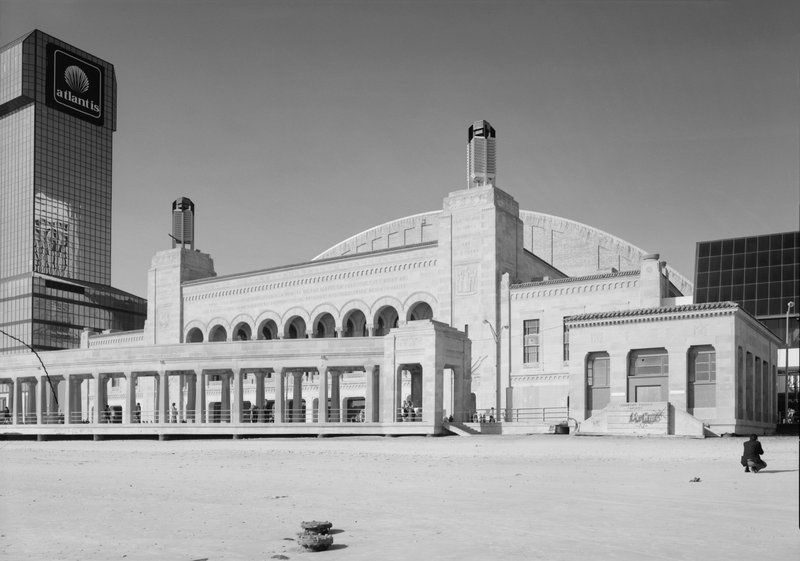Last-Minute NYC Holiday Gift Guide 🎁
We’ve created a holiday gift guide with presents for the intrepid New Yorker that should arrive just in time—


Trump World’s Fair which closed in 1999. Image via Wikimedia Commons from Library of Congress.
Before becoming a presidential candidate, Donal Trump stepped into the casino world in Atlantic City, New Jersey in the ’80s and ’90s, in an effort to reinvigorate the city’s casino culture. Born in New York City, Trump has worked on large-scale real-estate development projects throughout the city. In 1982, he entered the casino world after being granted a casino license by the New Jersey Casino Control Commission, slowly acquiring land along Atlantic City’s boardwalk. Eventually, Trump opened four casino-resorts, but a downturn in the city’s economy ultimately brought his ventures to bankruptcy.
Despite Trump’s efforts, The New York Times reported that “a close examination of regulatory reviews, court records and security filings by The New York Times [left] little doubt that Mr. Trump’s casino business was a protracted failure.”
Trump’s first effort was a joint venture with Harrah’s Entertainment. Together they opened Harrah’s at Trump Plaza in 1984, though the partnership would not last very long. One year later, Trump purchased an unfinished casino-resort from the Hilton chain for $32o million and opened it as Trump Castle. But its location next to Harrah’s Marina caused some tension, eventually leading Harrah to sell his $220 million stake in Trump Plaza back to Trump, effectively ending their partnership.
Next, he began one of biggest projects of his career: opening Trump Taj Mahal. This $1 billion project, opened in April 1990, was New Jersey‘s tallest building (at 42-stories) and one of the world’s largest casinos. Seen as the crown jewel of Atlantic City, it brought in visitors from all over the world, including many celebrities. However, since he won the unfinished Taj Mahal from talk show host Merv Griffin, total debt on the casino exceeded $820 million. Underfunded, it was seen as a venture doomed to fail. Just one year later, the Taj Mahal was forced to go into Chapter 11 bankruptcy, Trump Plaza and Castle following suite in 1992.
In 1995, Trump established the Trump Hotel and Casino Resorts (THCR) as a publicly-traded company. The company took over Trump Plaza and purchased the Taj Mahal. The purchases led Trump and those in charge to believe that things were turning around in Atlantic City so THCR opened Trump’s World Fair in 1996. That particular casino was closed three years later with plans to reopen a larger resort in its place in a time predicted to be Atlantic City’s comeback.
The comeback never happened and in 2004, THCR was forced to file for bankruptcy to restructure its debt. After reducing his ownership, THCR became Trump Entrainment Resorts which filed for bankruptcy in 2009. Today, the Taj Mahal the only one of Trump’s casinos still open, and it one of the few left in Atlantic City. Trump eventually left the casino business world and continued to focus on his New York City real-estate ventures. As a current presidential candidate, Trump points to his business acumen as reason to be elected president, though many cite his failings in Atlantic City as a counter to that argument.
Next, check out 20 Abandoned Places in NYC: Asylums, Hospitals, Power Plants, Islands, Forts.
Subscribe to our newsletter